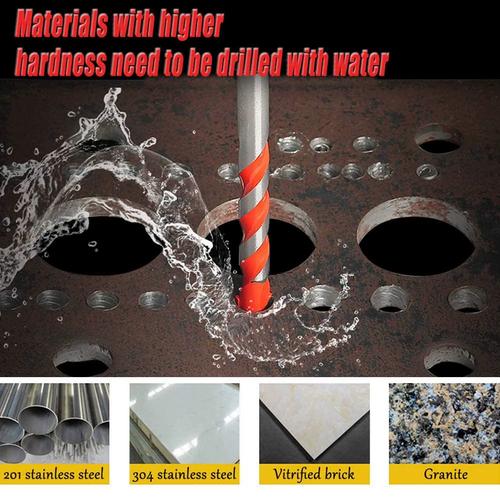
Which Drill Bit is Most Appropriate for Drilling into Brick?
When it comes to drilling into brick, selecting the right drill bit is crucial for a successful and efficient job. The wrong bit can lead to frustration, damage to the brick, and even injury. In this article, we will explore the various types of drill bits available and help you determine which one is most suitable for your brick drilling needs.
Types of Drill Bits for Brick
There are several types of drill bits designed specifically for brick and masonry work. Each type has its own advantages and is suitable for different situations. Here are the most common types:
| Drill Bit Type | Description | Best Use |
|---|---|---|
| Masonry Drill Bit | These bits are designed with a diamond or tungsten carbide tip and a masonry-specific shank. | General brick and masonry drilling |
| Core Drill Bit | Core bits are used for making larger holes and can remove a cylindrical core of brick. | Larger holes, core removal |
| Masonry Hole Saw | Hole saws are circular blades that cut through brick and masonry to create holes. | Large holes, circular shapes |
| Masonry Burrs | Burrs are small, pointed bits that are used for precision drilling and cutting. | Small holes, precision work |
Choosing the Right Drill Bit for Your Project
When selecting a drill bit for brick, consider the following factors to ensure you choose the most appropriate one for your project:

- Size of the Hole: The size of the hole you need to drill will determine the type of bit you should use. For larger holes, a core bit or hole saw is ideal, while smaller holes can be handled with a masonry drill bit or burr.
- Material of the Brick: Different types of brick may require different drill bits. For example, softer bricks may require a slower drilling speed and a bit with a softer tip, while harder bricks may require a faster drilling speed and a bit with a harder tip.
- Drilling Speed: The speed at which you drill can affect the quality of the hole and the life of the bit. Generally, slower speeds are recommended for softer bricks, while faster speeds are better for harder bricks.
- Drill Bit Material: The material of the drill bit can impact its durability and performance. Diamond-tipped bits are the most durable and suitable for the hardest bricks, while tungsten carbide bits are a good compromise between durability and cost.
Drilling Techniques for Brick
Once you have selected the appropriate drill bit, it’s important to use the correct drilling techniques to ensure a successful outcome:
- Drill at the Right Speed: As mentioned earlier, the drilling speed should be adjusted based on the type of brick and the drill bit material. A slower speed is generally recommended for softer bricks, while a faster speed is better for harder bricks.
- Use a Pilot Hole: Drilling a pilot hole can help guide the drill bit and prevent it from wandering. This is especially important when drilling larger holes.
- Apply Light Pressure: Applying too much pressure can damage the brick and the drill bit. Use light pressure and let the bit do the work.
- Keep the Drill Bit Clean: As you drill, the bit will accumulate debris from the brick. Regularly clean the bit to prevent it from overheating and to maintain its performance.
Conclusion
Selecting the right drill bit for brick drilling is essential for a successful project. By considering the size of the hole, material of the brick, drilling speed, and drill bit material, you can choose the most appropriate bit for your needs. Additionally, using the correct drilling techniques will help ensure a high-quality outcome. With the right tools and knowledge, you can easily drill into brick with confidence.





